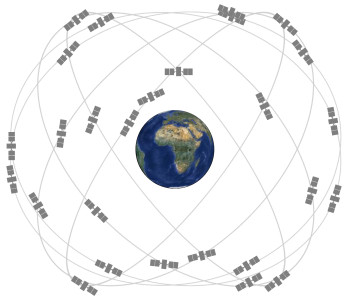Yesterday, the European Space Agency (ESA) announced they plan to launch their own version of satellite GPS and end Europe’s reliance on America’s GPS system. The ESA has been developing the Galileo system for several years and currently have four satellites in orbit with plans to launch the remaining 26 over the next few years. An article on the International Business Times says that the Galileo system will be nearly twice as accurate as the current GPS system in use and will be able to provide accurate location (within 100 meters) anywhere in the world in as little as 30 minutes, claiming that the current GPS system can take a minimum of 45 minutes (usually longer) to establish a similar location. The ESA website claims Galileo will be accurate within a few meters once fully operational.
Unlike the current GPS system, the Galileo system will be controlled by civilians, not military, and is engineered to help with search and rescue in addition to other GPS services. The satellites will be equipped with transponders that can not only transfer distress signals to regional rescue centers, but also respond to the distress signal with a confirmation that help is on the way.
The four operational Galileo satellites were launched in 2011 and 2012, with two more scheduled to launch in the next few weeks. There doesn’t seem to be any sort of date set for the system to be fully functional, but it should be within the next few years.

